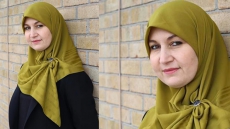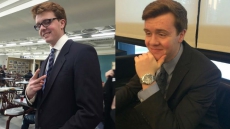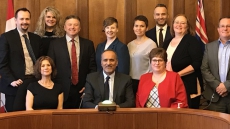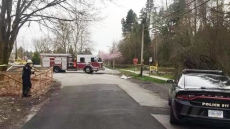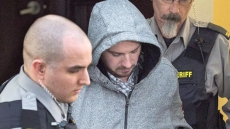VANCOUVER — The president of the University of British Columbia opened the Indian Residential School History and Dialogue Centre on Monday with an apology to survivors for the school's role in perpetuating a harmful system.
Santa Ono said universities bear part of the responsibility for the history because they trained many of the policy makers who administered the schools and tacitly accepted the silence surrounding them.
Ono said failing to confront a heinous piece of history, even if the university didn't cause it, would mean becoming complicit in the ongoing harm.
"That is why, today, on behalf of the UBC community, I apologize to you who were so affected by that system, for our participation in a system that has oppressed you, excluded you and that, through intention or inaction, continues to cause offence," he said in a statement.
Ono said few Canadians are aware of the history of the residential school system or its lasting harmful effects. That ignorance is no accident, he added.
"Expressions of Aboriginal culture were banned by Canadian law from 1885 to 1951, and only recently has significant attention been given to Aboriginal history, experience, and perspectives in school curricula at any education level," he said.
The dialogue centre that was officially opened is intended to educate the public about the devastating impact of the residential school system.
Cindy Tom-Lindley, a former resident school student and executive director of the Indian Residential School Survivor Society, said in a release that teaching and learning about Canada's past is the responsibility of all, not just First Nations.
"It is my hope that people take advantage of this centre and education themselves so that we can all have a better understanding and help create a brighter future for generations to come."
First Nations Summit Grand Chief Edward John said the centre will be an important reminder for Canadians, and a valuable path to reconciliation for residential school survivors.
Ono said nearly every Indigenous family in Canada has been affected by the schools, and the effects on communities continue to this day.
"Those who survived often left feeling distraught, alienated and angry," he said. "With no or limited experience of family life, and no means to address the trauma they had experienced, many transmitted the abuse they had endured to later generations."
The two-storey centre was funded by $5.5 million in donations.
